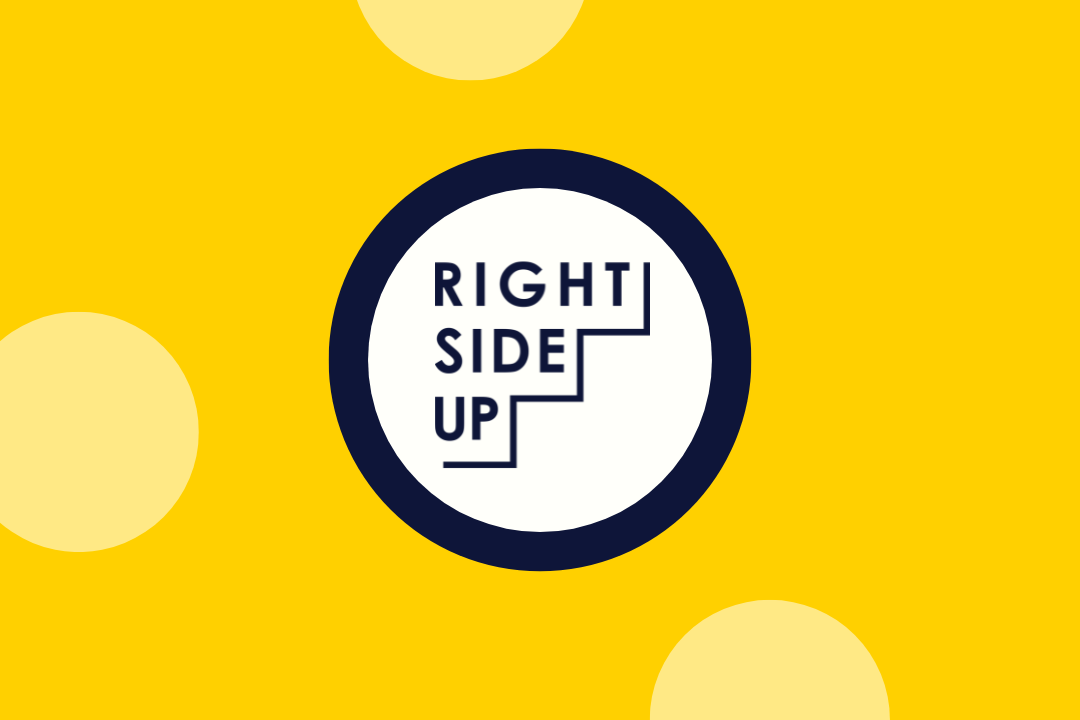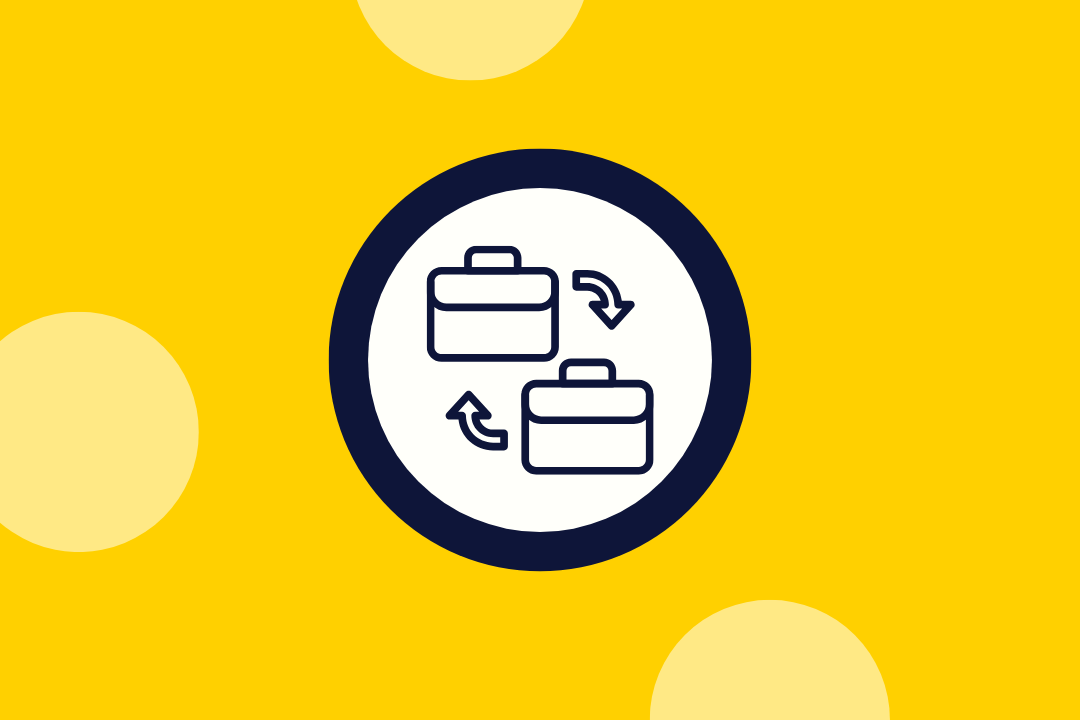How Independent Contractors Can Take Advantage of the Paycheck Protection Program
Published
May 4, 2020
Updated
July 6, 2021

Taxes as a 1099 contractor can be complex, which is why Right Side Up invited Greg and Amita from Harrison Accounting Group, Inc. to join us for an hour-long webinar to share their expertise and answer your questions ahead of the upcoming tax filing season. As a reminder, the 2019 tax deadline (which would have been April 15, 2020) has been extended to July 15, 2020.
We’ve transcribed and organized all of the information they shared with us, and we’ve broken it down into three key sections: an overview, info about tax deductions, and details about the CARES Act and Paycheck Protection Program (which you're currently reading). Disclaimer: This is neither financial nor legal advice; please speak with your CPA.
Can you talk a little bit about how the CARES Act impacts freelancers, whether through the PPP program or other?
Generally, you can apply as an independent contractor for the Paycheck Protection Program (PPP). It’s basically a loan that has some forgivable segments attached.
The CARES Act was signed by President Trump on March 27, and now they're dealing with the business side of it. A lot of banks are having challenges getting these done.
Prior to Friday, April 3, the CARES Act also opened up the Emergency Injury Disaster Loan (EIDL) for self-employed individuals, which is a loan, not a grant. There was one segment of it that they were offering up to $10,000 per person. Within three days of filing with the EIDL, you’re supposed to have gotten this $10,000 loan, minimally. I saw a note from the Small Business Administration (SBA) two days ago that said if you applied for this EIDL $10,000 loan prior to March 30, you should reapply, because all those applications that were sent in didn't go anywhere.
The PPP is the bigger piece, which is what opened up to self-employed individuals on April 10. (Note: the original funds ran out on April 16, but a second round of funds was approved by the government and the SBA began accepting applications again on Monday, April 27.) There are segments in it that may potentially be forgivable.
For businesses, what they did is they calculated what they deemed “payroll costs”—average monthly payroll costs—and they multiplied that by 2.5x. For independent contractors, they’re looking at the average monthly net profit amount, and multiplying that by 2.5x. (More on this below.)
For example, somebody nets $60,000 on their Schedule C. That’s averaging about $5,000/month, which if you multiply that by 2.5x, results in a $12,500 loan.
As long as the loan is used for business purposes, 75% of the total loan needs to go toward payroll cost, and the remaining 25% can go toward rent, lease, utilities, or interest on obligations that existed prior to February 15, 2020.
So it sounds like, as a digital marketing consultant with clients, whether you’re a sole proprietor or an LLC, you’ll most likely qualify for the PPP program if you’ve been adversely affected by COVID-19. But you should basically buckle up for frustration and uncertainty submitting an application and actually receiving funding. Is that right?
Yes. The application itself is very simple and straightforward, but it's the supporting documentation that is challenging because lending institutions aren't really sure what they want. For payroll costs/average monthly net profit amount, they were doing the previous 12 months (April 1, 2019 through March 31, 2020), which is what the Treasury wanted. But the forms still referred to 2019, so then they were going for the calendar year. They ended up saying you can do either/or, and they’ll figure out which is better. They also let employers deal with seasonality in case people could have the ability to get higher returns. What the government has said is that they want to try to get people money quickly.
For self-employed individuals, there was also the Disaster Unemployment Assistance (DUA) to try to claim unemployment. Normally, self-employed individuals wouldn't be eligible, but they opened it up to try to keep people off unemployment and give them grants and aid in other capacities.
I do think that's a really important point—when you're working as a 1099, you aren’t eligible for unemployment benefits because there's no employer paying into it. But this DUA program is basically unemployment for people who have not been paying in or who haven’t had companies paying in for them.
It is. And I've heard that because of COVID-19, they've also opened up some of the unemployment benefits to self-employed individuals where they historically had never done that before. (Eligibility and guidelines vary by state. Contact your state's unemployment insurance office to learn about who can collect benefits, how to file a claim, and if any delays are expected.)
Quick question on the CARES Act. You said we could either use the last twelve months or your 2019 tax return—whatever is most advantageous to you as a two and a half month calculation.
That's what we're anticipating. The forms for businesses were amended up until midnight the night of Thursday, April 2, when they were opening up their portal at 12:01 am. The self-employed forms (along with eligibility requirements and instructions) were made available on April 10. You essentially take your net profit amount from your 2019 1040 Schedule C line 31, calculate the average monthly net profit amount (i.e. divide by 12), and multiply by 2.5x.
That said, if you were creative and lowered your taxable income significantly in 2019, your trailing 12 months would likely be higher since they include the first three months of 2020, which you’ll probably have very few expenses against until you’re closer to doing your tax planning later in the year. So, I would expect this to be a greater win for everybody.
And if we've vastly increased our income in these first three months of 2020...
If you track your earnings on QuickBooks or something like that, that’s what you’d likely have to supply to the lender to show them a different time period than the filing period.
For the forgiveness part—since we're independent contractors, when the loan is deposited into my bank account, does that qualify as paying myself?
Yes, that would qualify as paying yourself, which they’re calling “owner compensation.” The government has decided to limit the forgiveness of this owner compensation replacement for individuals with self-employment income who file a Schedule C to eight weeks’ worth (8/52) of 2019 net profit. (More details here.)
Do you recommend going with another potential SBA lender than your current bank? For example, I have Chase right now and all the messaging has been you have to have a Chase business account, whereas I only have a Chase personal account because I don't have an LLC I use.
It depends. There’s going to be a lot of subjectivity to the forgiveness piece, so if you have someone at your bank who knows who you are—in other words, you’re not just a number—this would be a great reason to stick with that bank.
Worst-case scenario is that as soon as you find out they're not going to forgive your loan for whatever reason, you just pay it back with a small interest rate. Right?
Right—1%. Originally when they came out with this, it was going to be a 4% 10-year loan, then it switched to a 0.5% 2-year loan, and the night before it went out, and it changed to a 1% 2-year loan. You’re correct that while the interest is deferred for six months, it still accrues. So if you find out a piece of it is not going to be forgiven, then that's exactly what you would do—you would look at paying it back quickly.
If you’d like to join our team of A+ freelance growth marketing experts, send your LinkedIn profile to hello@rightsideup.co. We’d love to chat with you!
.webp)
.webp)
.webp)
.webp)
.webp)
.webp)
.svg)
.svg)
.svg)
.png)


.png)







.png)

.webp)
.webp)
.webp)
.webp)
.webp)
.webp)